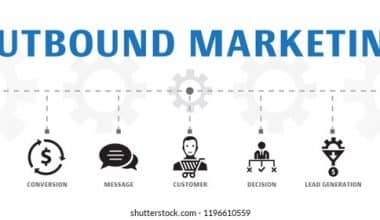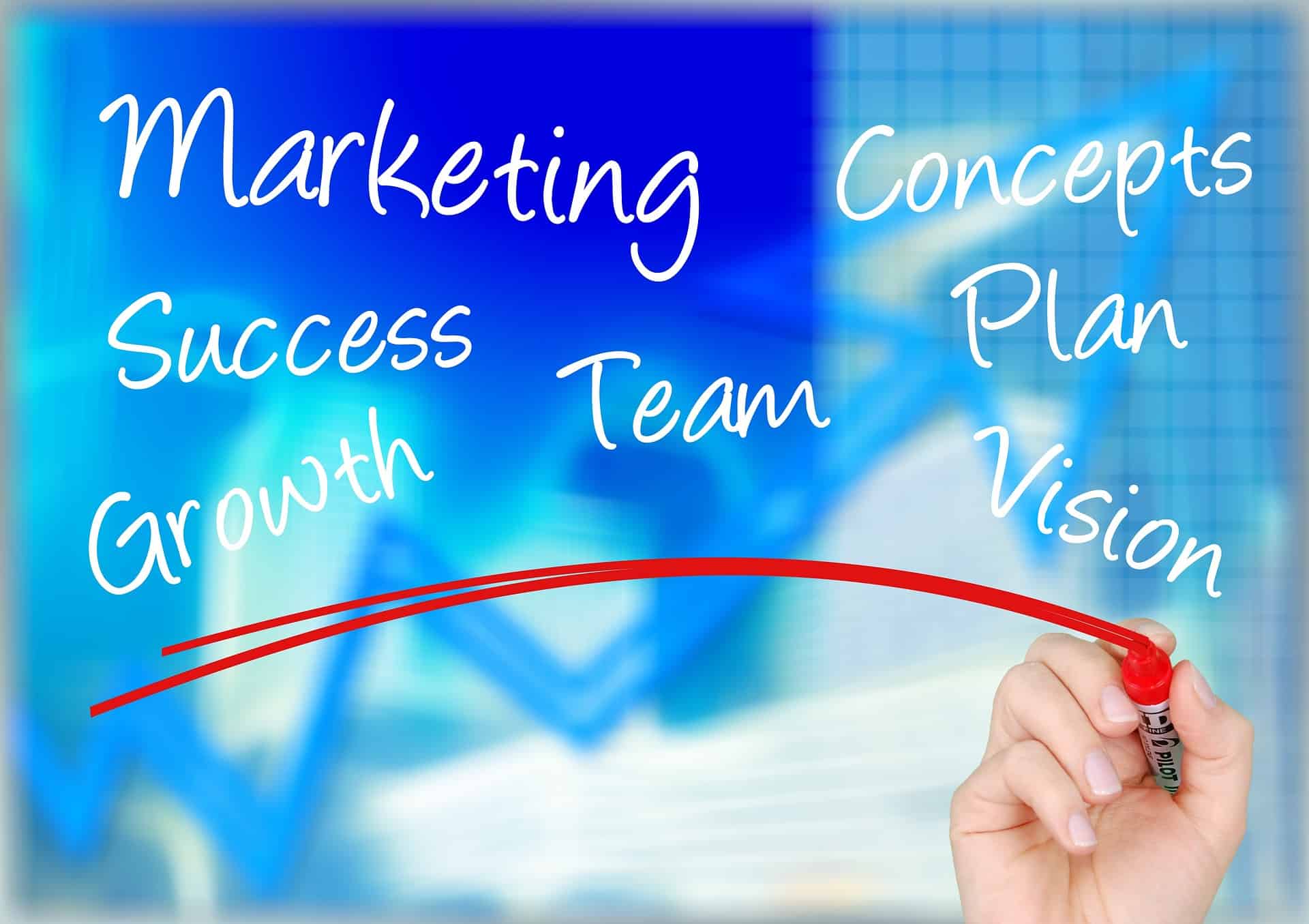Every business needs a marketing strategist that will put plans into action and not just draft it. It takes more than planning to work it out. This article tells you what a marketing strategist does, the B2B, Brand, growth, and salary.
Marketing Strategist
A marketing strategist is in charge of putting marketing plans into action. However, they not only conduct rigorous research to uncover new marketing opportunities but also create creative concepts to increase brand exposure. Moreover, a marketing Strategist is someone who uses marketing tactics to promote a brand’s product or service to retain and attract clients.
What Exactly Does a Marketing Strategist Do?
Below are some things marketing strategist does.
#1. They perform research and data analysis.
Marketing strategists must be well-versed in market trends and devote sufficient time to in-depth research. Furthermore, you examine the information from economic trends, numerous advertising strategies, and population groups as a Marketing Strategist. Then marketing Strategists will find prospective loopholes and investment opportunities for the future development of ongoing strategies by collecting information.
#2. Create Ideas for Better Strategies
Coming up with unique ideas is an important component of the planning and overall strategy process for a Marketing Strategist. Moreover, new concepts will be transformed into marketing campaigns, which must fit budgetary constraints as well as overall business objectives.
Marketing Strategists are not the same as Marketing Directors.
While a Marketing Director plans successful marketing campaigns and branding strategies. Their main responsibility is to ensure that marketing tasks are accomplished and that advertising strategies are given to suitable marketing specialists. However, The typical day for a marketing strategist consists of analyzing data to determine the best way to boost services or products whilst also remaining within budget.
Metrics that are important for a Marketing Strategist
- Firstly, Revenue
- Secondly, ROI (Return on Investment) (ROI)
- then, Return on Ad Spend(ROAS)
- Thirdly, The typical length of the sale
- Fourthly, Customer Lifetime Value (LTV)
- Lastly, Customer Acquisition Cost(CAC)
B2B Marketing Strategist
B2B (business-to-business) marketing strategist is any marketing approach or content aimed at a company or organization. Moreover, B2B marketing strategist is a method often used by any firm that sells goods or services to other companies and organizations (rather than consumers).
Let’s look at essential B2B marketing strategist that will not only help your company keep up, but will also help you get ahead.
#1. Research B2B Marketing Strategist
The foundation of any professional marketing campaign is research. Thorough scientific studies will assist you in making more informed decisions, from market research to brand research. Furthermore, They will supply you with an objective foundation for your marketing as well as helpful baselines for monitoring your success.
By performing research, you will gain a greater understanding of your clients, allowing you to better serve them. Market research also provides information on how your procedures are performing. Additionally, You’ll learn which areas of your company are working the best and gain a better knowledge of which services you should provide.
#2. A Niche-Driven Strategy B2B Marketing
Specializing and niche targeting are two of your most critical company factors – period. Our research has repeatedly demonstrated that the fastest-growing companies are typically specialists in a narrowly defined area. Hence, this should be a field of business that you are intimately familiar with, one in which you can establish yourself as an undisputed expert and leader.
Specialization simplifies all of your marketing efforts because it defines exactly what you do and instantly distinguishes you from the competition. A specialty is a distinguishing feature that stands out.
#3. A Website with High Performance
In today’s professional services industry, your company’s website is one of its most valuable assets. It is far more than an electronic billboard or brochure, as some businesses previously imagined. Meanwhile, a successful website serves as the center of a company’s online presence as well as an information-rich projection of its knowledge into the marketplace.
Your website is an important tool for increasing visibility. Potential clients look for service providers online, and they must be able to find your firm’s website for you to gain their business. Furthermore, your website allows you to demonstrate your firm’s competence and become well-known in the marketplace.
#4. Search Engine Optimization (SEO)
For your site to be effective, your target audience must be able to locate it. This is where search engine optimization comes into play.
This is such an important element of the internet marketing puzzle that high-growth enterprises rank it as the most successful online marketing method accessible to them in our research.
Althoughperiodto SEO is a complex and ever-changing subject, it ultimately comprises two fundamental components.
On-site SEO employs keyword phrases to describe the concepts on your site that are important to your audience. Such keyword phrases are usually about your skills and expertise.
The goal of on-site SEO is to inform search engines about the content of your website. Moreover, this enables search engines to return more relevant results to users. And when viewers go for information on your area of expertise, they’ll find you.
Read Also: UNRELATED DIVERSIFICATION: Strategies for Management (+Examples)
Off-site SEO includes links to your website from other sources, such as outside interaction or guest pieces in other publications. These initiatives help to establish your website’s authority as a globally acknowledged leader in your field.
As more high-authority and relevant websites connect to your site, search engines will begin to regard it as more legitimate, resulting in higher rankings.
If you need any more evidence that social media is here to stay for professional services firms, look no further. According to our research, more than 60% of purchasers explore new service providers on social media, making it a more regularly used source of information than official referrals and recommendations.
#6. Advertising B2B Marketing Strategist
Advertising does more than just boost your products or services. it can however increase your visibility and professionalism.
However, it is critical to choose techniques of advertising that are most suited to professional services. LinkedIn, retargeting, and other industry-specific advertising are the most effective because they enable you to specifically target relevant industry audiences. Thereby, resulting in more conversions, greater click-through rates, and reduced cost per download.
#7. Marketing Automation, Customer Relationship Management, and Lead Nurturing
Marketing Automation: Marketing automation automates high-touch, repetitive manual operations that are enabled by technology. Moreover, it combines all of your advertising mediums into a single centralized system for developing, monitoring, and measuring programs and campaigns.
As with any technology tool, choosing the best marketing automation software for your company is critical. So, check to see if the size, complexity, and scalability of a potential solution are a good fit for your requirements.
CRM: A Customer Relationship Management System is another crucial piece of software (CRM). A CRM is used by many businesses to manage and organize opportunities and customer data. In summary, no matter how complicated your operations become, a CRM will help you stay organized and connected
Even your employees from various firm departments can enter, save, and access the information, allowing your firm’s efforts to be synchronized.
Lead Nurturing: CRM, however, is not the end of the story. Remember the content funnel for lead nurturing? Your website is an important aspect of that puzzle, as is email marketing. Plus, Targeted, analytics-driven email marketing campaigns enable you to make soft and hard proposals for certain buyer roles, suited to the buyer’s stage in the purchasing process.
Drip email campaigns, on the other hand, allow you to send highly tailored offers to subsets of your audience over a predetermined period of time. This fosters deeper engagement (and additional education) through a series of relevant material and offers.
Brand Marketing Strategist
A brand strategist is a marketing expert who is in charge of the messaging and strategy of a company. Moreover, effective brand strategists comprehend their company and its products and target audience, as well as how to create customer experiences that lead to sales.
What Is the Role of a Brand Marketing Strategist?
A brand marketing strategist develops brand messaging and ensures consistency across all channels and platforms. Their work duties may include the following:
- Researching existing market trends and forecasting future developments that may affect the profitability of their product or service
- Creating a marketing plan by analyzing market data, customer input, and survey replies.
- Looking for catchy brand names for new products or Existing products or services that have been rebranded
- Researching the intended audience is what brand marketing strategist does
- Brand positioning entails establishing the benefits that the target audience associates with the brand’s name.
- Developing buyer personas, which are descriptions of the firm’s ideal customer’s age, lifestyle, personality, goals, wants, and obstacles.
- Conducting audits every year or two to examine the brand’s market position and strategies to boost it
- Marketing strategist develop brand architecture, including the logo, narrative, creative materials, and marketing campaigns
- Creating brand tales that inform people about a product or service while attempting to establish an emotional connection with them.
- Overseeing the creation of all brand creative—advertisements, presentations, catalogs, sales sheets, social media campaigns, blogs, and testimonials—and ensuring consistency in tone and content.
- Consistent content creation for marketing materials
- Researching to uncover competitors’ strengths and weaknesses, as well as the strengths and flaws of their products
Growth Marketing Strategist
Marketing growth is a method that strategist use for attracting, engaging, and retaining customers that are based on constant experimentation. And also intensive attention to your customers’ unique, evolving motives and preferences.
The Key Components of a Growth Marketing Plan
Metrics like customer acquisition rates, conversion rates, customer retention rates, and client lifetime value can be used to guide a growth marketing strategy. Following are some of the most effective strategies used by today’s growth marketers to attract, convert, generate, and retain engaged customers. All of these strategies are commonly employed in the e-commerce industry, but they can also be effective for brick-and-mortar businesses.
Growth marketing strategist: A/B split testing
A/B testing, or better yet, multivariate testing, is a key component of a successful growth marketing strategist. Moreover, Email marketing, landing sites, social media ads, and other formats can all benefit from A/B testing and multivariate testing. This entails running either a “A” and a “B” test, or a series of several tests, to determine which variation of your content (with variations in visuals, copy, design, and other characteristics) engages your audience and increases your conversion rate the best.
Growth marketing strategist: Marketing via cross channel
Cross-channel marketing aims at developing a strategic channel plan to contact your customers. which may involve email marketing, SMS messaging, push notifications, in-app messages, direct mail, and other channels depending on your audience’s preferences. Furthermore, When adding a cross-channel marketing strategy as a growth marketing strategy, you must first identify the individual user’s communication preferences and then develop your strategy accordingly.
Growth marketing strategist: Customer Lifecycle Management
A customer lifecycle is a path that your customers take as they discover about, connect with, purchase or convert from, and re-engage with your organization. To simplify, growth marketers focus on three important lifecycle stages: activation, nurturing, and reactivation. Each stage has a specific purpose as a contributing aspect to the client experience and is frequently distinguished by specific campaigns.
The activation stage is the first step of the lifecycle in which corporations attempt to pique consumers’ attention and interest. So as To create familiarity and credibility, growth marketers target clients with welcoming, onboarding, trials, and other introduction campaigns.
The nurture stage is where businesses nurture and engage customers in order to strengthen connections. Hence, This stage often accounts for the vast majority of cross-channel marketing from brands, including deals, promotions, recent updates, newsletters, and more.
The final stage of reactivation focuses on re-engagement. Businesses renew consumer engagement at this point to increase retention and loyalty through initiatives such as post-purchase, abandonment, loyalty, or win-backs.
What Is the Salary of a Marketing Strategist?
In the United States, the average marketing strategist’s salary is $60,060 per year or $28.88 per hour. However, marketing strategist in the bottom 10%, such as entry-level positions, their salary is less than $41,000 per year. Nevertheless, the richest 10% of marketing strategist’s salary is an average of $87,000 every year. Many marketing strategist salary appear to be drawn to organizations in technology and finance. Unless they are more concerned with salary, in which case marketing strategists are more likely to work for technology, energy, and media corporations. Moreover, workers in these industries may attest to the fact that this is where the money is. Although money is crucial, many people base their professional selections purely on location. As a result, we discovered that the highest-paying states for marketing strategist salaries are Pennsylvania, Virginia, and New York.
What Makes a Marketing Strategist Crucial?
In order to create an organizational plan to meet customer needs, marketing strategy assists in identifying the areas that organizational growth affects. It aids in setting the appropriate price for an organization’s goods and services based on data gathered through market research.
Qualifications and Requirements for Marketing Strategists
comprehensive understanding of content management systems and CRM software. familiarity with Google Analytics and SEO/SEM. Outstanding organizational and time management skills. Excellent communication, interpersonal and presentation skills.
What Skills Make a Good Strategist?
Great strategists are dynamic storytellers who possess the ability to make the incredibly complex feel simple—or at the very least, logical and easily digestible. And it’s not enough to be exceptional writers; strategists must also be highly skilled at presenting their ideas to a broad range of audiences.
What Is the Basic Role of a Strategist?
An individual who is in charge of developing and carrying out a strategy is known as a strategist. In general, strategy entails deciding on actions to accomplish goals, allocating resources to carry out those activities, and identifying goals. The means by which the outcomes (goals) will be accomplished are described in a strategy (resources).
Is Strategist a Good Career?
Businesses in a variety of industries use strategists, making corporate strategy a lucrative professional path. You can choose from a wide range of positions or tasks if you choose to become a strategist. While it’s a competitive field, skilled corporate strategists are in high demand.
Conclusion
With the above guide, am sure you are now clear on marketing strategist and what it entails.
Marketing Strategist FAQ’s
Why you need a marketing strategist?
Every business should have a marketing strategy, no exceptions. Marketing results don’t just happen by chance. Creating a strategy ensures you’re targeting the right people, with relevant content that appeals to them. The more time you spend creating a clear strategy, the more opportunities you create to sell.
How do I become a good marketing strategist?
- Firstly, Knowledgeable About Marketing Technologies. …
- Secondly, Experienced At Making Strategic Decisions. …
- Thirdly, Works With Trusted Team Of A-Players. …
- Next, Analytics Is Their Sweet Spot. …
- Passionate To Help Clients Succeed. …
- Lastly, Takes A Customer-Centric, Revenue-First Approach.
How much do marketing strategists make?
The salaries of Marketing Strategists in the US range from $16,753 to $448,774, with a median salary of $81,733. The middle 57% of Marketing Strategists makes between $81,733 and $203,901, with the top 86% making $448,774.
- DIGITAL MARKETING STRATEGIST: Job Description, Qualifications, & Salaries (Updated)
- What is B2B Sales? 15 Best Strategies for B2B Sales Lead
- DIGITAL MARKETING: Definition, Types and, Strategies
- CONTENT MARKETING STRATEGIST: Definition, Role & How to Become one
- PERSUASIVE ADVERTISING: What It Is & How to Do It






